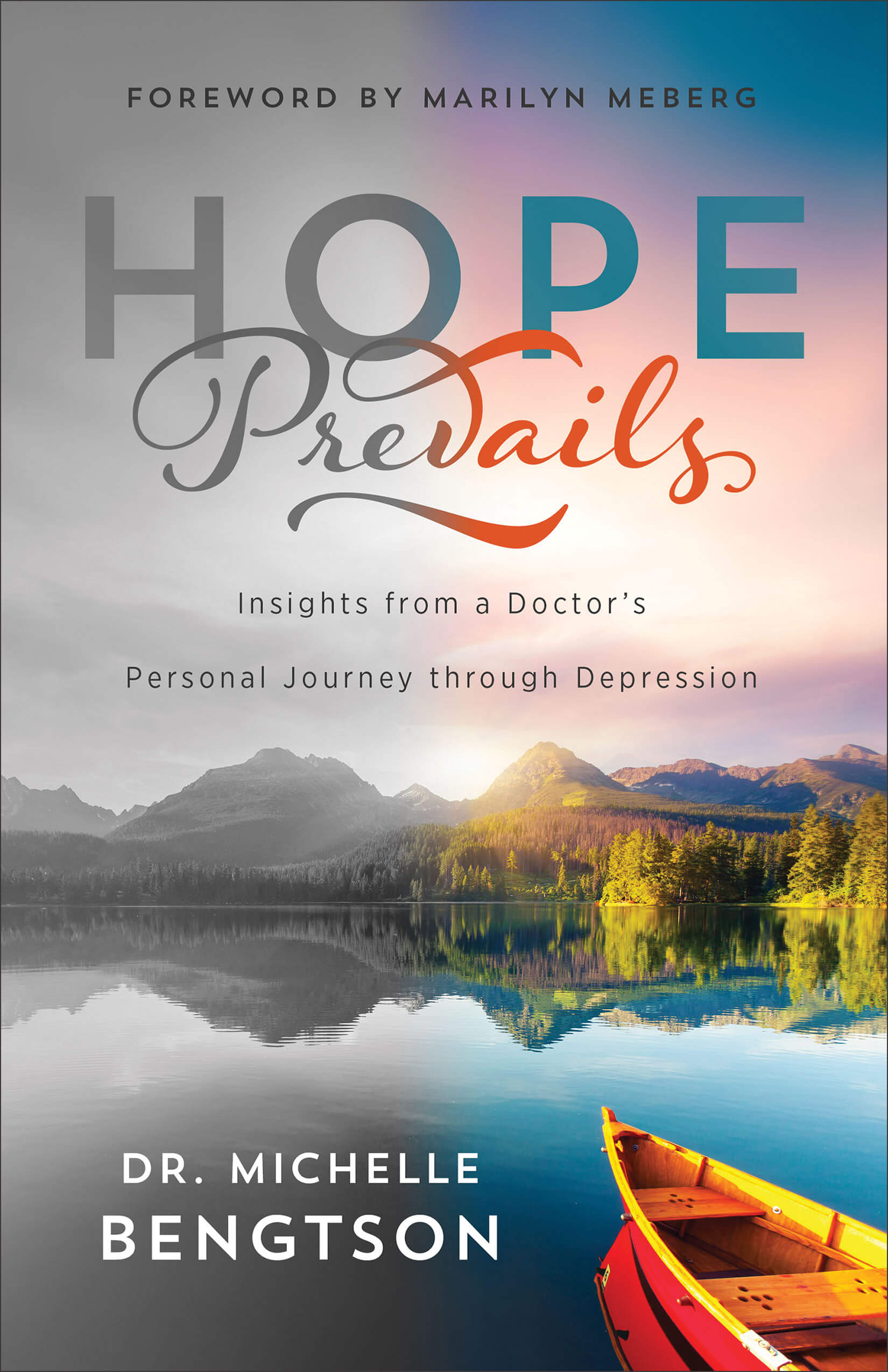Hope Prevails! by Dr. Michelle Bengtson
I feel society as a whole tends to do well with serving the needs of those that face an immediate crisis far better than it does the needs of the chronically ill.
Medical advancements allow us to live longer lives than ever before. Some of these advancements mean that someone with a particular medical condition may live decades longer than they would have with this same condition 100 years ago. But too often we tend to neglect the emotional and mental costs associated with this longevity and long-term treatment.
For instance, a doctor may be well trained to deal with the medical implications for a certain illness however they may have little to no training in regard to the physiological, social, and cultural problems a patient faces in the long term.
One of the most common problems that come from a long-term chronic illness is depression.
Diagnosing depression can be tricky. There are a number of symptoms associated with it that may also be associated with a chronic illness. For example – insomnia, lack of energy, fluctuation in weight. This leaves the doctor wondering if it’s just symptoms from the illness or if it’s become depression.
Approximately one-third of patients with a chronic illness will also be diagnosed with depression. As opposed to 4-8% of the generally “healthy” community.
Patients are often left to deal with the stress of the loss of their career choice, added financial pressures, and broken dreams on their own. Often a patient goes through a grieving period of the life they thought they would have and it’s hard to know when that natural grieving should turn to acceptance or is lingering too long and now has become depression.
The pain, fatigue and symptom flares that accompany chronic illness can mean the patient isn’t able to get out to social activities, visit friends, attend church or even run to the store for necessities. The lack of socialization and conversation adds to the build-up of depression.
A visit to your general practitioner has to be more than just a review of physical symptoms and adjustments to medications. Viewing the patient as a physical, emotional, and spiritual being is needed. Unfortunately, too often we’re allowed 10 minutes with the doctor so the physical needs take precedence over the mental and emotional.
There are no easy answers to these problems. When you have a chronic illness life is forever changed and we’re often left to cope with these changes alone.
Something needs to change in our medical industry but until that happens we need to find ways to address the mental, emotional and spiritual issues together as a community.
For this reason, I decided it was time to start another virtual book club. This time I want to be able to have more conversations and interactions so we’re going to go about this a bit differently. I plan to send out posts you can read but we’re also going to have a Facebook group where we can share as we read through the book together.
The book I’ve chosen is Hope Prevails – Insights from a Doctor’s Personal Journey Through Depression by Dr. Michelle Bengtson. I met Michelle (virtually) a few years ago through a Christian writer’s group to which we both contributed. Dr. B is a is a board-certified clinical neuropsychologist with more than 20 years of experience in the diagnosis and treatment of medical and mental disorders in children, adults, and seniors. She has been in private practice for more than a decade of that time.
But more than that – she has experienced deep depression at a personal level.
As I read Hope Prevails over the past month I found encouragement and practical spiritual guidance through my own issues with depression.
The holidays are the worst time of the year for those that suffer so I thought it was a great time to come together, study this book and God’s word together and be an encouragement to one another.
I hope you’ll join me!
You can CLICK HERE to read more about the book and CLICK HERE to visit Dr. B’s blog!




